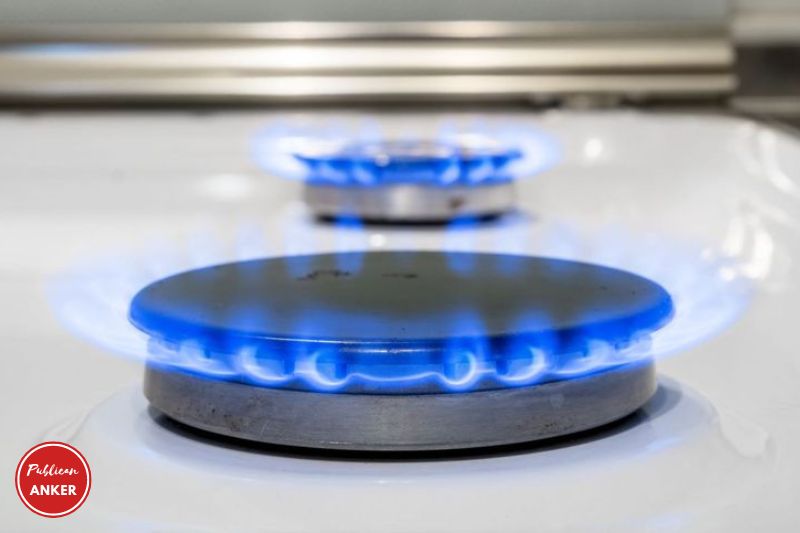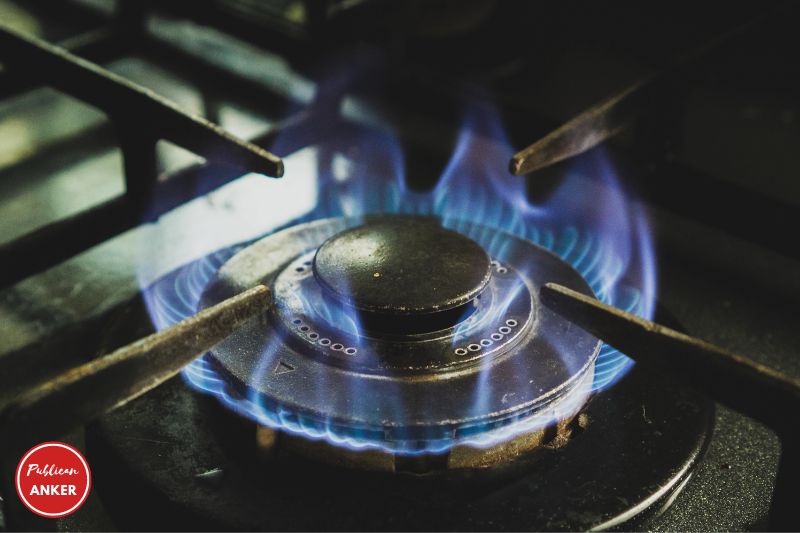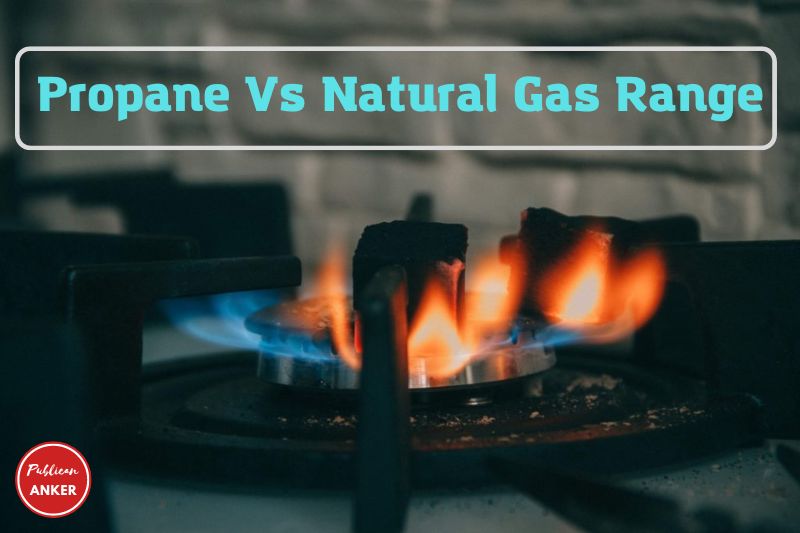Are you interested in the Propane Vs Natural Gas Range and need to learn more about both fuels? Do you frequently wonder what sort of fuel your household uses for cooking? Then you have come to the ideal location!
You’re incredibly clarifying their benefits and disadvantages so you can decide on the most acceptable energy. To begin with, you have to understand what propane vs natural is. After that, follow the content for additional information.
What Is Propane?
Propane is extracted from crude oil and oil gas throughout their refinement processes. The result is a concentrated, high-output gas stored under pressure in tiny cylinders or bulk tanks.
These tanks may be redeemed at places like grocery stores or convenience stores for minimal cost. High-volume operations may also arrange delivery methods using the majority of providers.
Generally, propane is used in areas outside of major metropolitan centers. That is because propane’s durability makes it the perfect – and sometimes only – alternative for remote places.
What Is Natural Gas?
Natural is a fossil fuel that’s taken out of the ground. This natural is mainly composed of methane and could contain smaller quantities of carbon dioxide, nitrogen, helium, and many others.
Gas is seen as an environmentally preferable alternative to other fossil fuels. Burning gas produces more minor harmful emissions than other fossil fuels if roasted.
Furthermore, nearly every metropolitan area in the USA uses natural pipes to make this resource readily accessible.
How To Compare Propane And Natural Prices
To compare the costs of both of these fuels, you can convert every energy to the same unit of measurement. Propane vs natural is typically quantified in liquid solids, whereas natural is measured in cubic feet.
To generate an immediate comparison, the two fuel sources must maintain precisely the same unit of quantity.
You could also compare each energy supply’s worth by discovering their evaluations of BTU. BTUs quantify the total amount of energy material every fuel has.
If you understand the purchase price and BTU rating of 1 cubic foot of natural and one cubic foot of propane, you may observe the cost difference versus the quantity of energy you’re buying.
What Is The Difference: A Gas vs Propane Stove?

Propane Properties
Propane can be found with or near gas. Liquefied petroleum gas refers to propane and natural gas, both byproducts of oil distillation.
Unlike natural, propane is easily storable as a liquid at room temperature as long as it’s stored under stress. This makes it highly transportable and offered in many different tank sizes, ranging from handheld to building-size.
Propane’s mass distribution version is less complex than that of pure. Propane pipelines typically serve just industrial sites, with most citizens picking up propane from the tank or becoming refills by automobile.
Natural Gas Properties
Natural consists primarily of methane and includes small amounts of propane, butane, and other gases, commonly before refining.
Natural is transported to houses and buildings by underground utility pipelines and stays in a gaseous state in the stovetop or furnace.
The only exception happens on liquefied gas (LNG) tanker vessels, which use frigid temperatures and high pressures to transfer natural for a liquid.
Propane Stoves
Most propane stoves, whether as grills or mobile cookstoves, are constructed for outdoor use. However, mainstream appliance makers such as Electrolux and Fisher & Paykel have already produced indoor propane ranges and stovetops.
Occasionally including advanced digital controllers such as their regular counterparts.
These stoves operate identically to standard gas indoor ranges nevertheless get their fuel from outside propane tanks.
Because natural and propane burn with similar properties, and propane is in gaseous form from when it exits the tank, the two types of stoves can sometimes utilize the other fuel after a conversion process.
Gas Stoves
Natural stoves and ovens are mainly indoors as virtual appliances in residential kitchens and are prevalent in restaurants. Such stoves frequently consist of digital presses and controls. They get gas in the pipeline utility system.
Safety
Natural and propane stoves may produce carbon dioxide (CO) fumes, and all indoor air stoves will need to be assessed regularly by a professional.
In addition, propane stoves are a common cause of CO poisoning when used inside or in densely populated areas.
Conversion
Since natural and propane burn similar properties, propane and natural are in gaseous form from the time it exits the tank, the two kinds of stoves can occasionally use the other’s fuel following a conversion process.
Tanked propane typically enters a cooker at roughly twice the strain of pipe-delivered all-natural, so the conversion process sets the range to deal with the stress of its fresh gas properly.
This is carried out by adjusting and replacing a bit known as the orifice and altering each burner.
Before performing a conversion, you must confirm that your stove version may safely utilize the additional gas with the manufacturer or tech.
How Can You Know if Your Stove Uses Propane or Natural Gas?

There are a few ways to tell if your stove uses propane or natural gas:
Look for a label or tag
Whether a stove is made for use with propane or natural gas can usually be determined by looking for a label or tag. The bottom of the cooktop, the inside of the oven door, or the rear of the stove are all possible places to find this label.
Check the owner’s manual
If you have the owner’s manual for your stove, it should indicate whether the appliance is designed for propane or natural gas. The manual may also provide instructions for converting the stove from one fuel type to another.
Check the fuel source
If you have a preexisting stove and aren’t sure what kind of fuel it takes, you may find out by looking at the fuel supply.
The availability of a natural gas connection indicates that the stove was built for use with natural gas. If your stove has a fitting for a propane tank, it was probably made for such fuel.
Consult a professional
You may ask a certified plumber or gas fitter if you’re still unclear what fuel your stove uses. They can examine your stove and advise you on the best fuel to use.
Some relevant posts:
- Does A Gas Range Need To Be Vented 2023: Top Full Guide
- How Many Btus Do I Need For A Gas Range 2023: Top Full Guide
- How To Choose A Gas Range 2023: Top Full Guide
- How To Clean Gas Range Grates 2023: Top Full Options
- How To Clean Gas Range Top 2023: Top Full Guide
FAQs about What Is The Difference Between A Gas Or Propane Stove

Is LPG better compared to gas?
LPG, aka propane tanks or liquefied petroleum, is more excellent on BTUs delivered and is far more energy-efficient than regular gas.
Is propane dangerous?
Every heating choice requires a while, and propane is no exception to this rule. First, of course, you always need to use propane safely. However, the material is comparatively benign by itself.
Propane is non-toxic, colorless, and odorless, and because that’s the situation, producers incorporate a distinctive odor into the material to be correctly detected.
Can LPG burns hotter than natural gas?
Yes, LPG burns hotter than standard gas (2,500 BTU vs. 1,000 BTU).
What else could propane do besides cooking and warming?
When most men and women consider utilizing propane, they anticipate heating their houses or performing some cooking. However, there are loads of different items for which the material may be used.
For example, were you aware that propane can power cars? More than 100,000 propane-powered cars are on the street in the USA.
More individuals can discover this very affordable choice as conventional gas costs increase. Propane also has its location in the agriculture and landscape business, in which it runs pumps and engines such as harvesting and may help dry and process plants.
Is propane great for your environment?
As interest in alternative fuel sources has improved, people have begun to adopt the environmental advantages of propane.
Propane is a clean-burning fuel and produces very little concerning exhaust emissions. Propane is not considered a greenhouse gas and does not damage freshwater and salt ecosystems.
Conclusion
Initially, both natural was different, but very few people could tell them apart. But through this guide, you need to know better the difference between Natural and propane.
And in addition, this is the response to which natural you ought to pick for your loved ones.
In case you have any natural queries, leave us a comment below. We’ll quickly find out and answer your questions. Thanks for reading.
